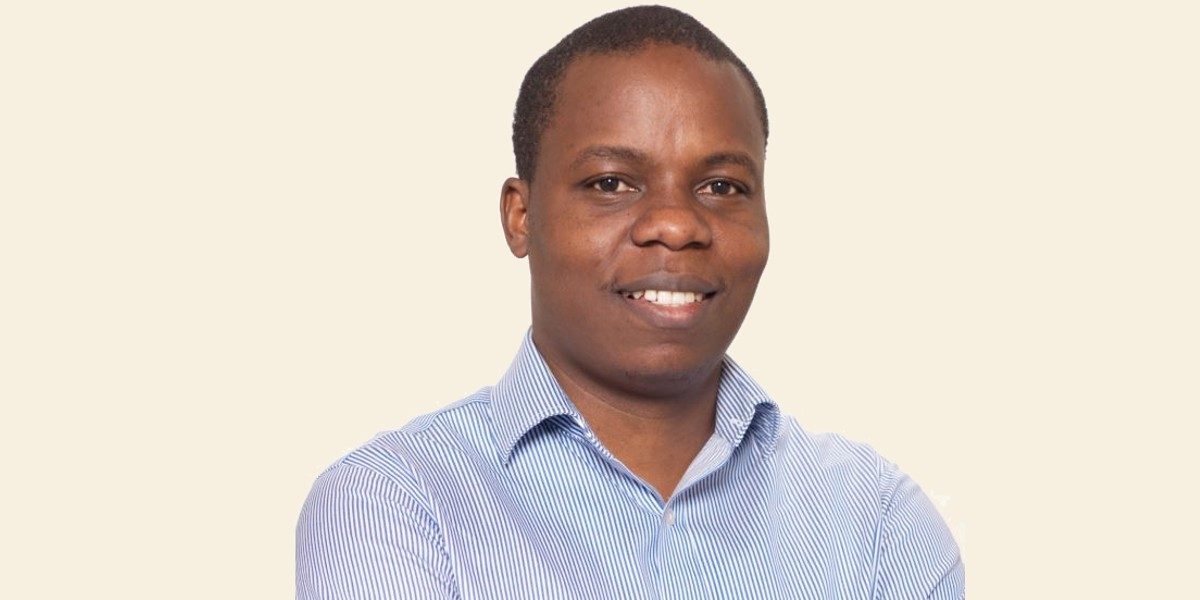
Meet Professor Edwine Barasa, Distinguished Fellow
Edwine is the director of the Nairobi Programme of the KEMRI-Wellcome Trust Research Programme and also heads the Programme’s Health Economics Research Unit (HERU). Edwine is also a Visiting Professor of Health Economics at the University of Oxford.
Tell us a bit about your background
I grew up in a rural western region in Kenya. It was quite common for me, my siblings, and other children to fall sick with common childhood diseases such as malaria, and so we were often in and out of hospital. This interaction with the health system piqued my interest in healthcare. When went to university, I remember being quite surprised that the childhood diseases that I had come to regard as part of the normal life of a child, such as malaria, typhoid and amebiasis, were deadly and responsible for many childhood deaths! I initially trained as a pharmacist in Kenya and worked as a clinical pharmacist in the public and private sector in Kenya. In this role, I was unsatisfied by the scale of impact, and wanted to work in a space where I could influence systems and policies, and hopefully have impact on populations. This desire led to my transition from clinical pharmacy practice to health policy and systems research. With support from a Wellcome Trust Masters Fellowship, and a Wellcome Trust Strategic Award, I obtained a Masters and a PhD degree in health economics from the University of Cape Town, South Africa.
You wear a number of different ‘hats’. What are your research interests and current roles?
My current roles span research, teaching, mentorship, and policy engagement. I am currently the director of the Nairobi programme of the KEMRI-Wellcome Trust, where I also head the programmes’ Health Economics Research Unit (HERU). I am also a visiting Professor of Health Economics at the University of Oxford. My research interests include the economics of health systems with a focus on equity, efficiency, health financing and Universal Health Coverage (UHC) reforms in Africa, and economic evaluation of healthcare interventions. I am also interested in the dynamics of priority setting in healthcare. I teach health economics and supervise students at Strathmore University in Kenya, and the University of Oxford in the UK. I play policy advisory roles locally and regionally to advance evidence informed policy making. Locally, I contributed to health financing and UHC reform processes in Kenya and was appointed by the Cabinet Secretary for health to the UHC Health Benefits Advisory Panel, and the National Hospital Insurance Reforms Panel. I currently serve as a member of the Kenya COVID-19 vaccines deployment taskforce. Regionally, am co-chair of the Africa UHC commission, and the co-chair of the Africa CDC Health Economics Unit advisory group. So, a few different hats!
What are the most valuable lessons you’ve learnt from your leadership experience at KEMRI Wellcome trust?
Firstly, that leadership is not only about long-term visions and strategies, but also about everyday leadership. I have also learnt that leadership entails role modelling desired behaviours. Leaders should not underestimate the influence they have on organizational behaviours. Finally, leadership, especially in research and academic settings, is facilitative rather than directive. For the most part, your role as a leader is to enable and facilitate staff to do their job, to create an environment that nurtures desired practices and supports the achievement of organisational goals.
How do you ensure impact from your research?
I strongly believe that the type of research I do, health policy and system research, should always aim to influence policy and practice. At a personal level, I promote policy impact of my research by creating and maintaining relationships with policy makers and participating in policy making in an advisory capacity. I do this by being part of local and regional policy/technical working groups. For example, at a local level, being a member of the expert panel on the National Hospital Insurance (NHIF) Reforms provided a great opportunity to channel research that I have done over several years focused on health insurance reforms. I am currently excited about my role as the co-chair of the advisory board of the Africa CDC health economics unit. Engagement with the Africa CDC provides me with an opportunity to engage on policy at a regional level especially at this critical time when the region is grappling with the COVID-19 pandemic. I also happen to be responsible for leading the policy engagement strategy at KEMRI-WT were we use several policy engagement strategies that include embedded research, the pro-production of research with policy makers, policy embeddedness, policy dialogues, and knowledge translation initiatives that aim to synthesize and provide research evidence to policy makers in formats that are accessible to them.
What are the biggest research gaps in health systems in the Sub-Saharan African region?
We need to first talk about barriers to doing research in Africa before we talk about research gaps. The first barrier in conducting research in Africa is funding. African countries spend on average less than 0.5% of their GDP on research, compared against the African Union target of 1% of GDP and the global average of nearly 2% of GDP. We need to address the underfunding of research in Africa. Second, before we think about research gaps, Africa needs to invest in its capacity to do research by, among others, training a critical mass of researchers. The continent has about 198 researchers per million people compared to for instance the United Kingdom, which has 4000 researchers per million population. Once we sort out funding and capacity, then pretty much most areas of health systems, including financing, governance, human resources for health, and service delivery have gaps that provide opportunities for impactful research. What will be needed, however, it to orient this research to address African problems, and to empower African scientists to lead research in their contexts.
What are your top tips in working with policy makers and in ensuring research is translated to practice?
One, it is all about relationships. Researchers should invest their time in nurturing trusting relationships with policy makers. Two, get off your high horse. Policy makers and implementors have knowledge and capacities that are valuable and complementary to knowledge produced by researchers. It is important to acknowledge and appreciate the forms of knowledge that policy makers and implementors have while seeking to leverage evidence to improve practice. Three, have patience and humility. Evidence informed policy making is non-linear and hardly happens in an instant. Policy engagement should adopt a long-term view. Policy making is complex and is influenced by multiple considerations. Evidence is just one of the considerations. It is important for those keen on policy engagement to see their role as contributing to, rather than defining the process.
According to you, what core values should underline research partnerships between Global South and Global North to ensure sustainable partnerships?
The cardinal value that should guide partnerships between the global South and global North is epistemic justice – Northern partners should disabuse themselves of the conscious and unconscious mindset that privileges western forms of knowledge and systematically ignores, undervalues, and excludes southern voices. Epistemic injustice manifests itself in inequitable allocation or roles (where global north partners take on research leadership roles while global south partners take on data collection roles), resources (where global north partners take the largest share of research funding), and outputs and credits (where global north partners get opportunities for recognition - publishing, seminar and conference presentations, while global south partners contributions are either overlooked or minimized).
What are your goals as a Distinguished Fellow at The George Institute?
The fellowship provides me with an opportunity to network and to apply messages from some of the work that I have been doing on health systems over the years. I look forward to engaging with the network members, reconnect with people I already know, and connect with new colleagues. I also look forward to sharing and discussing work around health system reforms in Africa, with a specific focus on health financing and Universal Health Coverage (UHC) reforms. I am conscious that different countries, and different contexts have used varied paths to UHC and I am keen to hear and learn from others on their context experiences, even as I share Africa’s experience.


